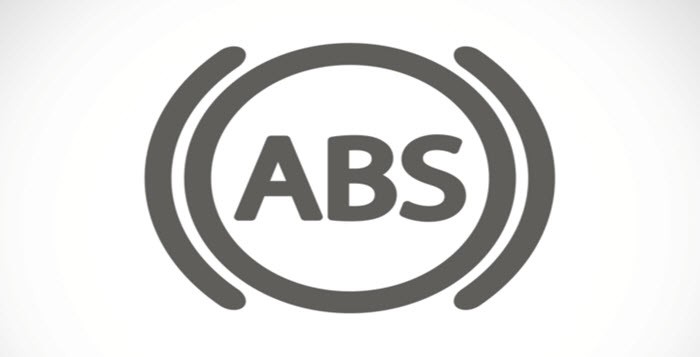If your car was built in the last 10 years or so, it probably has “ABS” — Antilock Brake System. That sounds impressive, but what exactly is an anti-lock brake system? How do anti-lock brakes work? And how does it affect you?
Contrary to popular belief, ABS doesn’t necessarily stop your car faster. In fact, in some cases, such as on a gravel road, ABS can actually increase the stopping distance.
How Anti-Lock Brakes Work
The real advantage is simple: It allows you to maintain steering control during severe braking conditions.
Think about the last time you had to stop in a hurry in a car without ABS: Once the wheels locked, the car kept going in whatever direction it was heading when you hit the brakes. It didn’t matter which way you turned the steering, when you have locked car brakes the vehicle is not going to turn direction.
That’s the whole idea behind ABS: Since the wheels never lock, you retain steering control. So, if you have to avoid something in front of you, you can, simply by turning the wheel.
The one problem with most antilock brake systems is that activating the system — by slamming on the brake pedal — causes the car to vibrate enough to loosen your fillings. It’s downright scary at a time when you’re already in terror mode, trying to stop in a hurry. This has created a situation where people often won’t apply the brakes hard enough to allow the ABS to work, causing the very accidents ABS was supposed to help avoid.
Dealing With Locked Car Brakes
The best way to become comfortable with the ABS system is to try it out… before you find yourself in an emergency situation. Find an empty road or parking lot, accelerate to about 20 or 30 miles an hour, and then try to lock the brakes. Get comfortable with the vibration now, so you know what to expect in an emergency.
And make sure you keep your ABS system in good working order by having your car’s brake fluid changed every couple years. Brake fluids tend to absorb moisture, and, if left in the system, can eventually cause the ABS components to corrode or wear. Regular fluid replacement can help keep the system in good working order.
Your local Cottman center can help you with that. They can flush your brake hydraulic system and replace the fluid for you, to keep your antilock brake system working like new. Give them a call and set up an appointment today.
